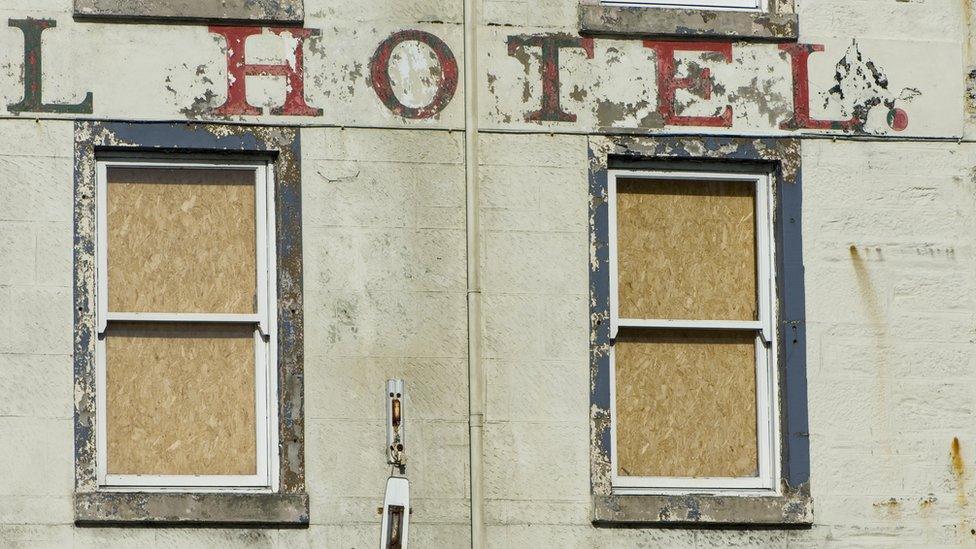Business rates under the microscope
- Published

Scotland's businesses, charities and public bodies are to learn later of reforms being recommended for their £3bn rates bill.
Non-domestic rates, also known as business rates, have been under review by an independent group set up by finance secretary Derek Mackay.
Ken Barclay, former chairman of the Scottish board of Royal Bank of Scotland, has led a panel considering ways to improve the system.
The remit required the five-member board to consider ways in which it could be fairer, while creating incentives for growth, and reflecting changes in the economy.
Since the review began, more than a year ago, criticism of the business rates system has mounted.
It was already under fire for being linked to inflation while council tax was frozen, and for the absence of any link to turnover, profit or ability to pay. For many businesses, the rates bill is the second biggest cost, after staff pay.
Significant exemptions
Earlier this year, the revaluation - based on notional rental values for commercial property in 2015 - led to sharp increases for some.
Bills are based on a "poundage" of roughly 50p, which means businesses pay around half the annual rental value in business rates. However, there are significant exemptions and reliefs, including charities, places of worship and many sports facilities.
The five-year revaluation cycle had been delayed, so this year's changes reflected a gap of seven years from 2008.
Coming out of deep recession, there had been substantial shifts in property values for different types of firm in different parts of the country.
In north-east Scotland, these failed to reflect the regional economic downturn that accompanied the oil price fall between 2015 and 2017.
Hospitality industry
The Scottish government stepped in with a relief package for north-east businesses, and also for the hospitality industry.
Since 2008, the Scottish government has also taken thousands of smaller premises out of the reach of business rates, by raising the threshold at which they start to be paid.
Most of that has been financed by a supplement on business rates for larger firms, running this year at twice the supplement for businesses in England.
The next revaluation is due in 2022, based on prices in 2020.
Council tax, for domestic property, has not been revalued since the early 1990s.
In addition to Ken Barclay, the members of the review team were business consultant Professor Russel Griggs, former civil servant and local government finance expert David Henderson: lawyer Isobel d'Inverno: and Nora Senior, former president of the British Chambers of Commerce.